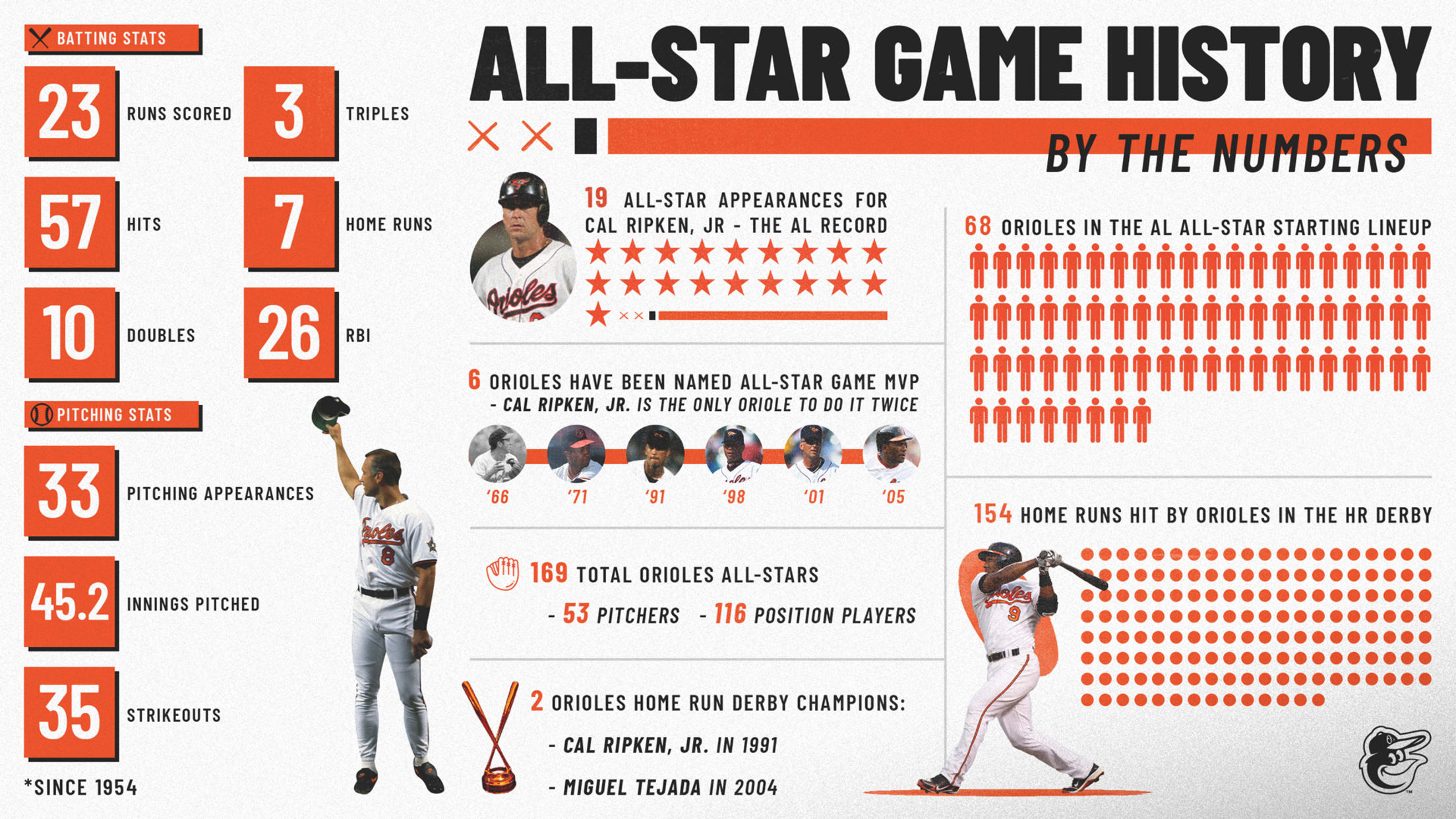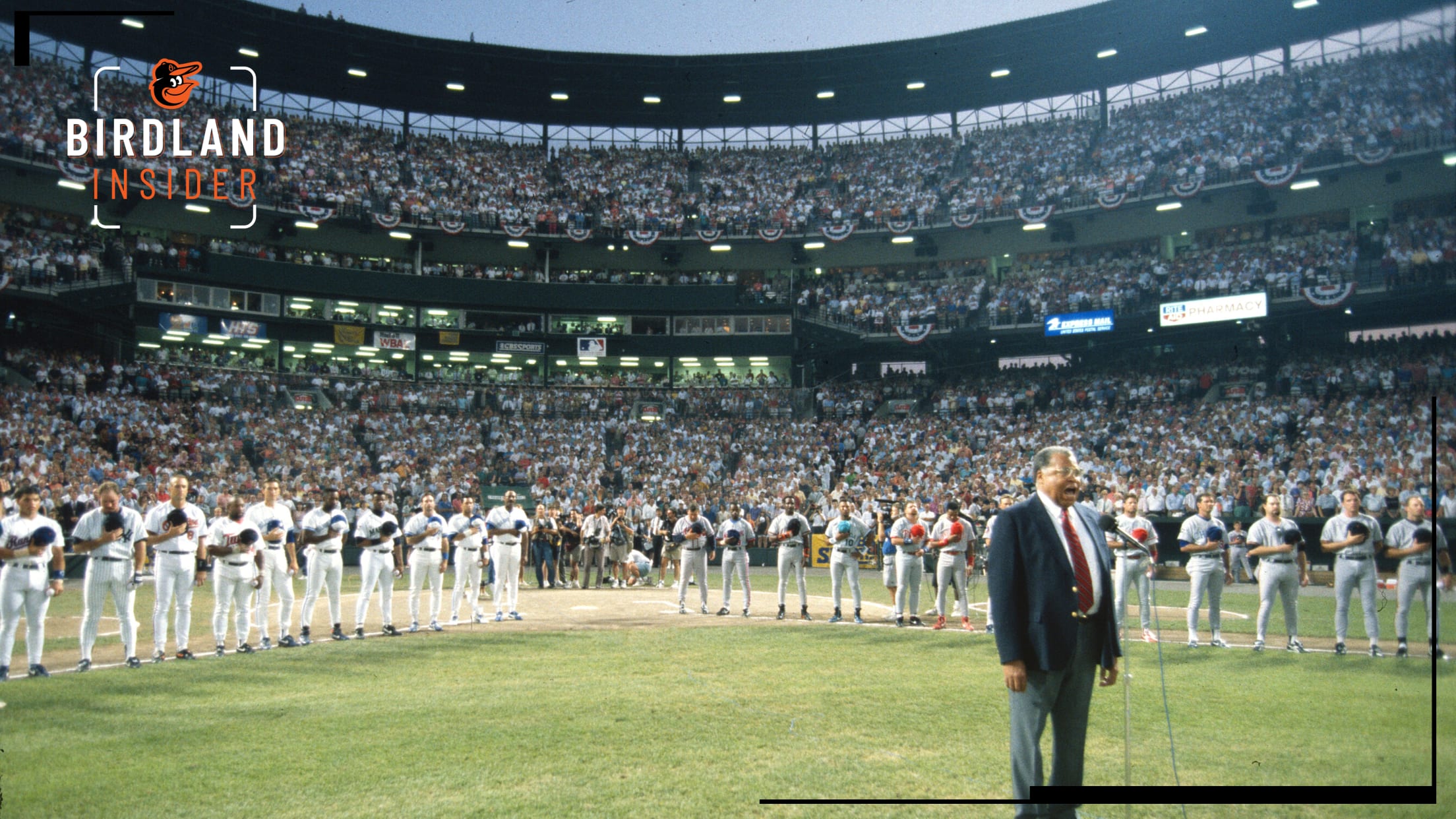
Baltimore’s Best: A look at the Orioles’ greatest All-Star moments
In a typical season, this would be one of the most significant weeks that everyone in the baseball universe has marked on their calendars: the All-Star break.
The game’s best athletes would be dressed to the nines and showing off their custom suits on the red carpet. Eight of the most talented power hitters would be crushing bombs and bat-flipping their way to the highly sought-after Home Run Derby trophy. The American and National Leagues would assemble the game’s most skilled players and battle it out to see which league reigns supreme.
But most importantly, the All-Star Game represents the halfway mark. The point of the season in which the marathon speeds up and starts to look more like a sprint to the end. Baseball in 2020 will look different in many ways; however, the 60-game season will look strikingly similar to the post-All-Star break sprint.
While social distancing, wearing face masks, and staying healthy at home have been at the forefront of everyone’s mind, we invite you to join us as we reminisce on some special All-Star Game appearances and moments throughout Orioles history.
2019
Lefty starter John Means was the lone Orioles representative in the 2019 All-Star Game at Cleveland’s Progressive Field. He became just the fifth rookie in Orioles history (since 1954), and the first since 1966, to be named to the team. Means was also the first homegrown Orioles starter to make the All-Star roster since Hall of Famer Mike Mussina, who made five All-Star appearances with the Orioles.
In his dominant first half of the season, Means pitched to a 7-4 record with a 2.50 ERA in 18 games (14 starts), and his ERA was the best among Orioles rookies dating back to 1954. The southpaw closed out the season with a team-leading 12 wins, 3.60 ERA and 11 quality starts. Means led all American League rookies with a 4.5 WAR and finished second in AL Rookie of the Year voting.
After an impressive rookie campaign, Means will make the Opening Day start for the Orioles on July 24 at Fenway Park in Boston, the same ballpark where he made his Major League debut in 2018.
2013
The 2013 All-Star Game at Citi Field saw three Orioles in the starting lineup: Chris Davis at first, J.J. Hardy at short, and Adam Jones in center. Davis, who also participated in the Home Run Derby, was named to his first career AL All-Star team and received the most votes among all Major League players with 8.2 million. The slugger joined Cal Ripken, Jr. in his 1992 campaign as the only two players in Orioles history to receive MLB’s highest number of fan votes.
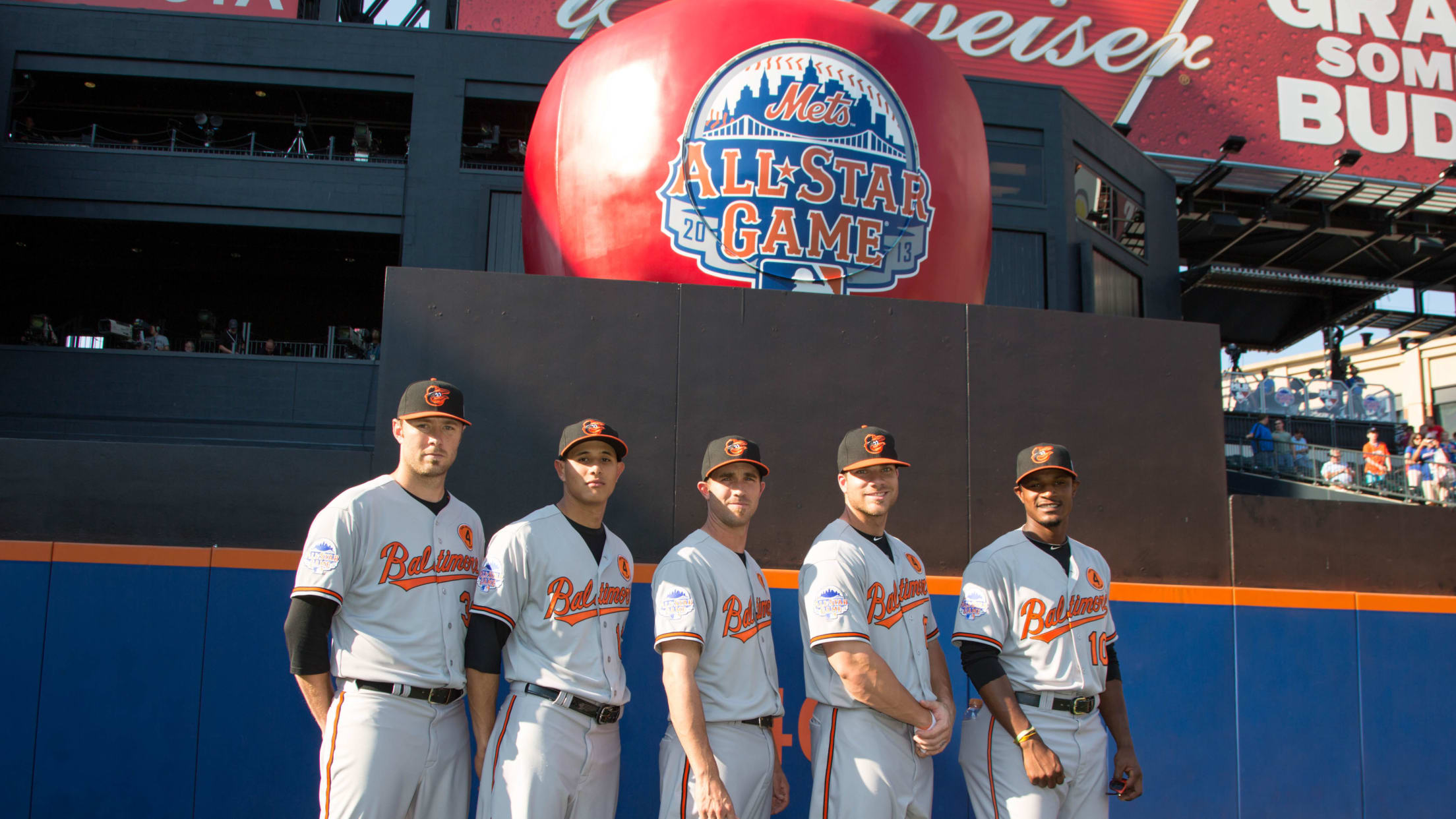
Davis had a career year in 2013 and finished the season with an Orioles franchise record and MLB-best 53 home runs, 96 extra-base hits, and 370 total bases. He was named the Most Valuable Oriole, won his first career Silver Slugger Award, and was a finalist for the Gold Glove Award at first base. Prior to the All-Star break, Davis secured AL Player of the Month honors for April after batting .348/.442/.728 with nine home runs and 28 RBIs through 27 games.
2009
Adam Jones represented the Orioles at the Cardinals’ Busch Stadium in his first career All-Star Game in 2009. In the fifth inning of the Midsummer Classic, Jones replaced Jason Bay, entering the game in right field and fifth in the batting order. In the top of the eighth inning with the game locked at 3-3, Jones stepped up to the plate and sent a sac fly to deep right, bringing home Curtis Granderson and giving the American League the lead, which they would hold on to and go on to win the game, 4-3.
At 23 years old, Jones became the third-youngest player with a game-winning RBI in the eighth inning or later of an All-Star Game. He joined outfielder Ted Williams in 1941 and infielder Hank Blalock in 2003, who each accomplished this feat at the age of 22. In addition to 2009, Jones was named to four more All-Star Game rosters on behalf of the Orioles, from 2012 to 2015.
2001
The 2001 All-Star Game at Seattle’s Safeco Field marked Cal Ripken Jr.’s 19th and final appearance in the Midsummer Classic. Of his 19 All-Star Games appearances, Ripken was elected as a starter in 18 of them, with 17 of those coming by way of fan vote. With this election, Ripken broke Orioles Legend and Hall of Famer Brooks Robinson’s American League record of 18 All-Star Games. In Ripken’s 21-year career, his first two seasons with rookie status were the only years that he did not make the All-Star roster. In addition to his 19 All-Star Games, Ripken won the AL Rookie of the Year Award in 1982, and he twice won AL MVP honors in his dominant 1983 and 1991 seasons.
Ripken did not disappoint in his final All-Star Game; the Orioles Legend homered on the first pitch he saw in the third inning, boosting the American League to an early 1-0 lead. Ripken became the oldest player to hit a home run in an All-Star Game at the age of 40, and the only Oriole to homer twice in All-Star play. The infielder went on to win his second All-Star MVP Award, with his first coming in 1991. He was inducted to the National Baseball Hall of Fame in 2007.
1993
Oriole Park at Camden Yards became the official home of the Baltimore Orioles on April 6, 1992. The ballpark immediately became the blueprint for future stadiums, inspiring the new concept of building state-of-the-art facilities, while still maintaining an old-fashioned feel within the heart of the city. Just 15 months later, the Orioles and their brand new park played host to the 1993 All-Star Game.
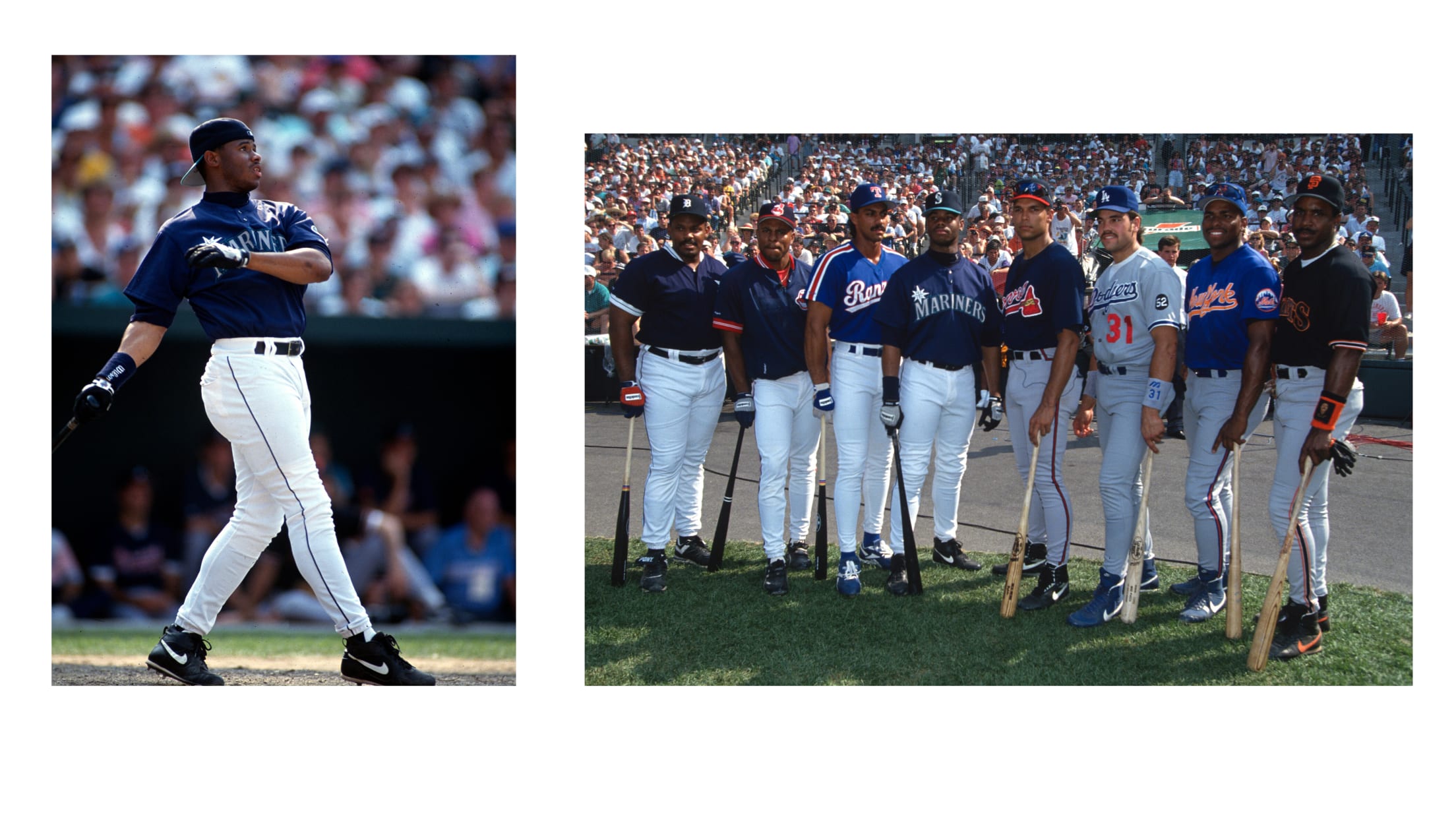
Future Hall of Famer and Mariners star, Ken Griffey Jr., participated in the 1993 Home Run Derby at Oriole Park, and he became the only player to ever hit the B&O Warehouse. Although it doesn’t count in the grand total of Eutaw Street home runs, no other player has ever hit the Warehouse with a home run ball in a regular or postseason game.
In the All-Star Game on July 13, Cal Ripken Jr. took the field as the starting shortstop for the American League in his home stadium. The AL claimed a 9-3 victory over the National League behind an early game-tying Roberto Alomar home run and back-to-back RBI knocks from Albert Belle and Ken Griffey Jr. A total of 48,147 fans funneled into Birdland’s new home to watch the 64th annual All-Star Game.
1971
Coming off arguably the best season in team history, Orioles manager Earl Weaver served as the American League manager in the 1971 All-Star Game, his second managerial appearance in the Midsummer Classic. Weaver managed the 1970 Orioles to a 108-54 regular season record, and future Hall of Famers Jim Palmer, Brooks Robinson, and Frank Robinson helped power the franchise to its second World Series championship.
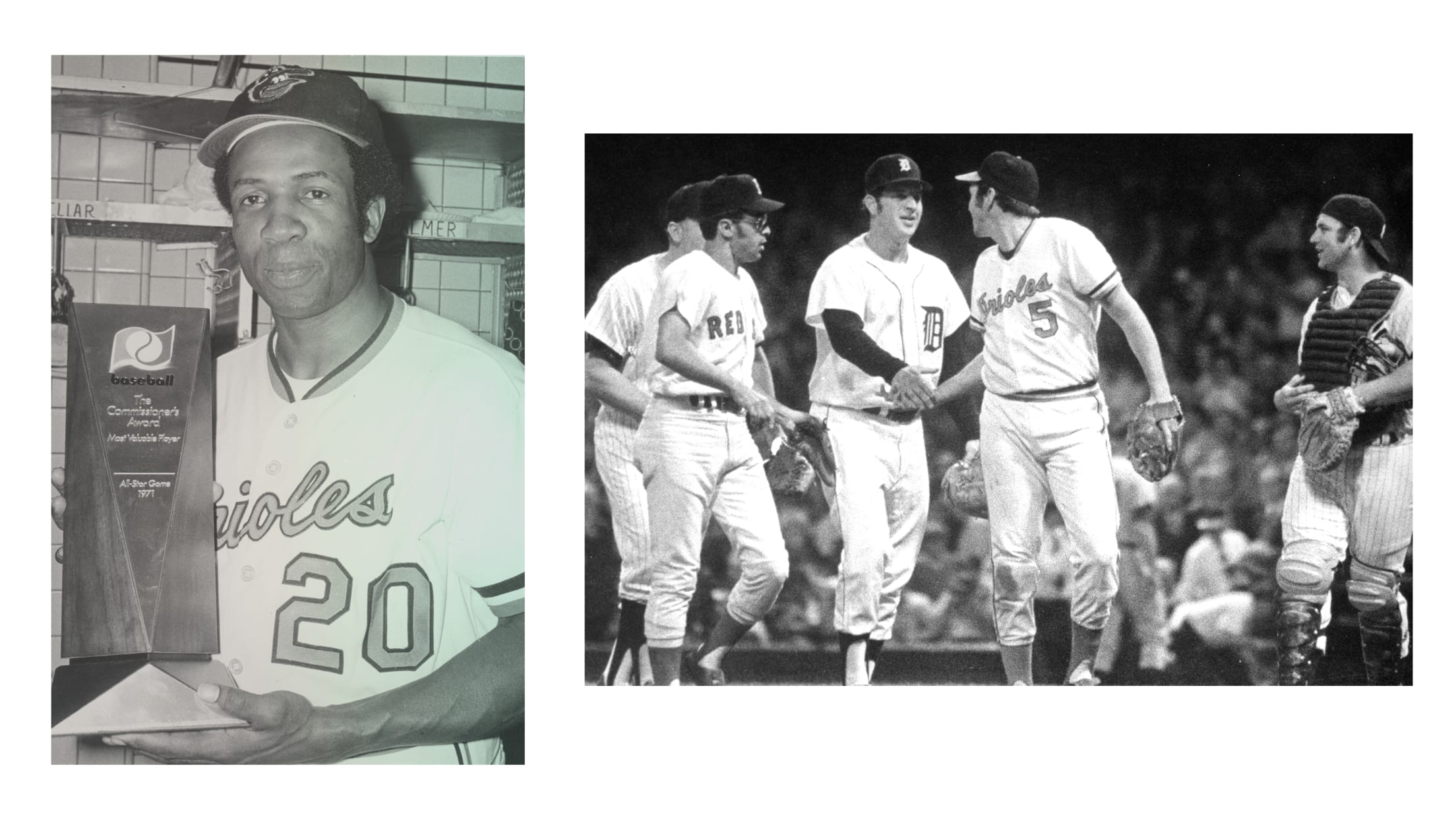
The 1971 AL starting lineup featured Orioles Legends Brooks Robinson and Frank Robinson, and Orioles outfielder Don Buford entered the game as a pinch hitter. In his final season as an Oriole, Frank Robinson represented all of Birdland as he sent a two-run bomb to deep right field in the third inning, giving the American League a 4-3 edge. The AL secured a 6-4 victory, and Weaver would go on to manage two more All-Star Games in his career. Weaver was elected into the Baseball Hall of Fame in 1996 after finishing his managerial career with a 1480-1060 (.583) record through his 17 years with the Orioles.
___
The 91st Major League Baseball All-Star Game was slated to take place this week at Dodger Stadium in Los Angeles. While there is a lot of uncertainty in the world right now, we are fortunate that baseball is back and to have such a storied history with the Midsummer Classic. Despite the cancellation of the 2020 All-Star Game, there is no doubt that there will be many more special and electrifying moments to come for the Baltimore Orioles.
